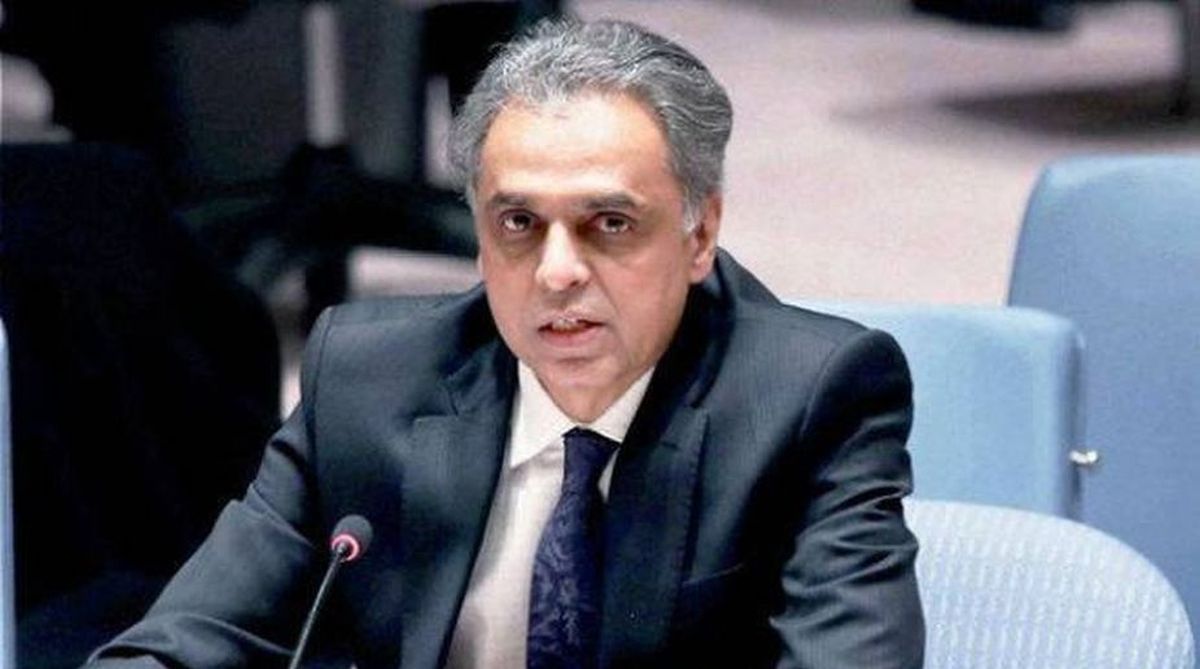Without naming Islamabad, India has charged Pakistan with providing safe havens to the Taliban and other terror groups responsible for violence and destruction in Afghanistan.
‘’All of us know and believe that there is no military solution to the (Afghan) issue. Yet, the Taliban, aided by their supporters, continue to pursue military operations perpetrating violence and destruction, like the recent attack in Ghazni, over several parts of Afghanistan.
Advertisement
These offensives are planned and launched by those who are harboured in safe havens in the neighbourhood of Afghanistan,’’ Permanent Representative of India to the UN Syed Akbaruddin said while participating in an open debate on the situation in Afghanistan at the UN Security Council.
He said the terror sanctuaries in Afghanistan’s neighbourhood had, for years, provided safety for the ‘dark agendas of ideologically and operationally- fused terror networks’ like the Taliban, Haqqani network, Daesh, AlQaeda and its proscribed affiliates such as the Lashkar-e-Taiba and Jaish-e-Mohammed.
The Indian diplomat said the agendas of these organisations drew financial sustenance not only from extortion and forced levies and taxes, but also benefit significantly from criminal networks operating drug cartels and stealing Afghanistan’s natural resources.
By some estimates, 60 per cent of the Taliban’s revenues were from the drug trade. Poppy cultivation is said to be the largest cash crop in Taliban-controlled areas, according to Akbaruddin.
India also criticised the world body for not doing enough to cut off the drug trade that was financing the Taliban with over a billion dollars as it continued its military operations with the support of Afghanistan’s neighbour.
“The opium produced in Taliban-controlled areas is estimated to account for 85 per cent of global illicit production, valued between $1.5 billion to $3 billion,” Akbaruddin said.
“By some estimates, 60 per cent of the Taliban’s revenues are from the drug trade. Poppy cultivation is said to be the largest cash crop in Taliban-controlled areas,” he added. Yet, said Akbaruddin, the UN had not given adequate attention to the drug trade that is financing the Taliban and other terrorist organisations.
While a Security Council resolution earlier in 2018 focused on the nexus of terrorism, drugs and illegal exploitation of natural resources in Afghanistan, it fell “short of expectations in striving to cripple the Taliban’s drug trade”, he said.
Secretary-General Antonio Guterres’ current report “also fails to address this very key issue in an adequate manner”, he added. Akbaruddin cited the experience of combating the Islamic State in Iraq and Syria where international action cut off its oil trade, reducing it by about 90 per cent, from about $50 million per month to $4 million, over three years.
This successful international campaign against the Islamic State should be replicated in Afghanistan against the Taliban’s drug trade, he said.
Akbaruddin said India was committed to helping Afghanistan and its “focus remains on the economic pillar of stability and reliable connectivity”. He said: “We strongly believe that lack of connectivity directly impacts the economic, security and political situation in Afghanistan and we want to address this crucial issue for the benefit of the Afghan people.”











